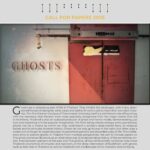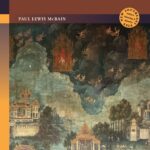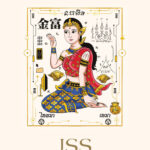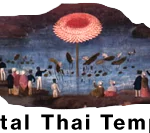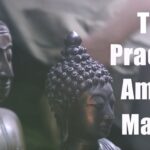Here’s a list of some of the more prominent documentaries that I’ve come across that are related to Buddhism. I have to say that there aren’t very many out there and, besides the top ones, the quality isn’t always that great. Please go out there and make documentaries about Buddhism.
1) PBS Documentary (2010)
A superbly-crafted documentary about the Buddha’s life and about Buddhist art and philosophy. It weaves together its own pleasant aesthetic with short animation clips. It features interviews with the Dalai Lama and current US poet laureate W.S Merwin (an inspiring talk given by which can be found here). The best thing about this documentary is that it is available in full for free here. The same site also has links to information about all the art included in the film. Whoever said that the US government never did anything for you?
2) Wheel of Time (2003)
It’s a bit off his usual man in/versus nature themes, which might be why so few people know that Werner Herzog made a film about Tibetan Buddhism. The film follows the Kalachakra celebrations of 2002 in Bodhigaya. The most memorable achievement of this film is how completely it takes you into another culture’s atmosphere. I got the same impression as I get looking at Rennaisance imaginings of all the scholars and philosophers of Athens, suspended in a half-real, half-ideal hazy Parthenon paradise of scholarly atmospheres. Here, we are taken into the medieval-like world of pious peasants and the divine mountaintop of their priestly elite. Mandalas are drawn and destroyed, monks debate slapping their hands against their opponents and kind old men suffuse the screen with their air of kindly wisdom.
3) Amongst White Clouds (2005)
I’ve already reviewed this film on this site. It’s clearly a first-time film from director Edward Burger, but the poetry of what is said and seen takes you into another, possibly wiser, world. Hardly anyone seems to have seen it though. Please watch it. You can see it for free in full on google videos.
4) BBC Documentary (2007)
Quite a bit drier and less inventive than the PBS alternative. Nevertheless a good, solid BBC proper documentary. Informative and with few frills or thrills. In time-honored fashion, the Buddha’s life is faithfully re-enacted according to the most reliable sources, who are interviewed. I remember a huge deluxe box set of this hour-long documentary coming out in department stores in Thailand, which made me wonder if there might be a gap in the market for this sort of thing.
5) Perfect Words of My Perfect Teacher (2003)
A very well-made documentary about the Bhutanese lama Dzongsar Jamyang Khyentse Rinpoche , who’s a pretty nutty sort of dude. He loves football and is often shown telling the film-maker how this film about him should be made. He has set up a number of charitable institutions and made two award-wining films, after having acted as an advisor on the Bertuolluci film ‘Little Buddha’ (itself an undeniably mediocre effort but occasionally resplendent with some of Bertuolluci’s sumptuous sets and visuals). Dzongsar seems to delight in vexing his students, frequently canceling appointments, often disappearing from sight for several days and rarely instructing them on anything they might consider ‘spiritual’. Or is he enlightened? It’s rather fun that this age-old Buddhist personality-paradox continues to entertain and fascinate people after so many centuries. The film is quirkily done, which much of the film devoted to demonstrating how frustrated the director was with her subject’s lack of interest in contributing much to it. Stephen Seagal, who is the recognized as the reincarnation of Chungdrag Dorje, a 17th-century terton (treasure revealer) of the Nyingma, is interviewed. Two relatively normal people who follow Dzongsar around also feature heavily.
It’s interesting reading the IMDB user’s comments on this film. One woman decries other people’s mixed reviews of the film and says that the only explanation could be that it brings up uncomfortable truths about themselves. Another reviewer – Mike – remarked, ‘These people don’t need spiritual enlightenment, they need therapy and some friends.’
6) A Tibetan Trilogy (1974)
You have to be in the right mood for this. Nothing much happens. Really, it’s just a very slow-paced cut of four or five scenes from everyday life at Dharamsala. If you can calm your mind enough, however, the very slow pace gives you time enough to become absorbed in the delightfully colorful mysteriousness of Tibetan Buddhism. You might not learn much about Tibetan Buddhism from this film, but you might get a glimpse of the feel of it.
7) Buddha’s Lost Children (2006)
A documentary film about Phra Khru Bah Neua Chai Kositto, a monk who has raised and teaches a group of novices from poor backgrounds in the troubled (though less troubled these days) Golden Triangle region between Thailand, Burma and Laos. It’s certainly very professionally done and Phra Ba’s bombastic personality is intriguing but one feels that there’s not quite enough material here to have been stretched over a feature and it gets a tad dull once it’s reached the mid-way point. Still, a worthy character to be introduced to.
8) Angry Monk (2005)
This is a film about the Gendun Choephel, a former Tibetan monk who travelled to India before the Chinese invasion and returned, preaching that Tibet should modernize. For this pains, he was thrown in jail. A nicely-crafted low-budget documentary, it seeks to debunk myths of pre-China Tibet as a Shangri-La of spiritual growth and contemplation. Rather, it was a place riddled with the same contradictions, cruelties and power struggles that make up any other society.
9)Brilliant Moon (glimpses of Dilgo Khyentse Rinpoche)
This is a biopic of the late revered Tibetan Master. It’s very well done, with nicely-crafted animations of Dilgo’s early years in Tibet and features narration by Richard Gere and Lou Reed. The film affords a pleasant visual feast and a pleasing foray into the sumptuous cosmic aesthetics of Tibetan Buddhism, but is principally about how wonderful Dilgo was. We learn that Dilgo digested information from every sect of Tibetan Buddhism and wrote dozens of books, yet we learn nothing of his own ideas or teachings. Well-done and pleasant to watch, but ultimately not very informative.
10) Crazy Wisdom
I can’t really say I recommend this. If you watch the trailer, you get hyped about the fascinating controversy that was Chogyam Trungpa. He was founder of several monasteries, the now thriving Shambala press and Naropa University, as well as an endlessly creative and charismatic individual. He was also an open alcoholic, womanizer and, it turns out, a cocaine addict. He died of liver cirrhosis. From the beginning of the actual documentary, however, one begins to worry that a new-age hagiography is about to be spun. We learn of how Chogyam Trungpa understood that the West was too materialistic, that he went to England and various people met him and knew that he was special. Fortunately, the filmmakers were willing to delve into the more controversial aspects of Chogyam’s guru-ship. But the main reason I kept watching was because I started to think that they might not. This film manages to be an occasionally objective, but rather boring paean to a multi-faceted and intriguing character.
Other Documentary Films
Blindsight (2006)
This is by far the best film on this list, but it can’t really be said to be a Buddhist documentary in the obvious sense. Still, it has very Eastern mentality versus Western mentality which those interested in Buddhism will probably find interesting. The film is about the first blind man to climb Mount Everest, Erik Weihenmeyer, and his project to get a group of blind Tibetan kids, who are cruelly discriminated against in Tibet due to what is perceived as their obvious bad karma, to climb a nearby mountain. Following him is the leader of the kid’s school, Sabriye Tenberken, a woman who because she was blind was not allowed to join the German equivalent of the Peace Corps to go to China, so she went by herself. Then she travelled around Tibet on a horse – blind – collecting children for her school. The compelling conflict in this film is between the kid’s teacher and the mountaineering feat project leaders. The leaders are portrayed as having a very ‘Western’ mentality, wanting to show these children that they too can be the best and get to the top. However, the leader of the school has the view that these children will never be the best, that she doesn’t want them to try to be, she wants them to enjoy be alive to the feeling of snow, the sound of the bells of passing cattle
Doing Time, Doing Vipassana (1997)
The film-makers got access to a fascinating early experiment in teaching Vipassana in Indian prisons. The film includes interviews with Goenka and the Chief Inspector for Prisons, but does not make much use of these as nobody says anything beyond the boundaries of what we would expect them to say. The narrator tells us how to interpret almost every scene, following a rather bland script. Having said that, I thought that some attempts to describe meditation experience were admirable. It would seem that the film-makers had no translator, as virtually everyone they interview is a foreign prisoner or an Indian meditation teacher or member of the prison staff. No Indian prisoners are interviewed. Potential viewers should be warned that the film is done with a distinctly 1980s aesthetic. There is tacky synthesizer music and shameless use of cross-fades and white-outs throughout – all very off-putting. However, a very worthy subject to do a documentary on, which can be viewed in full here.



